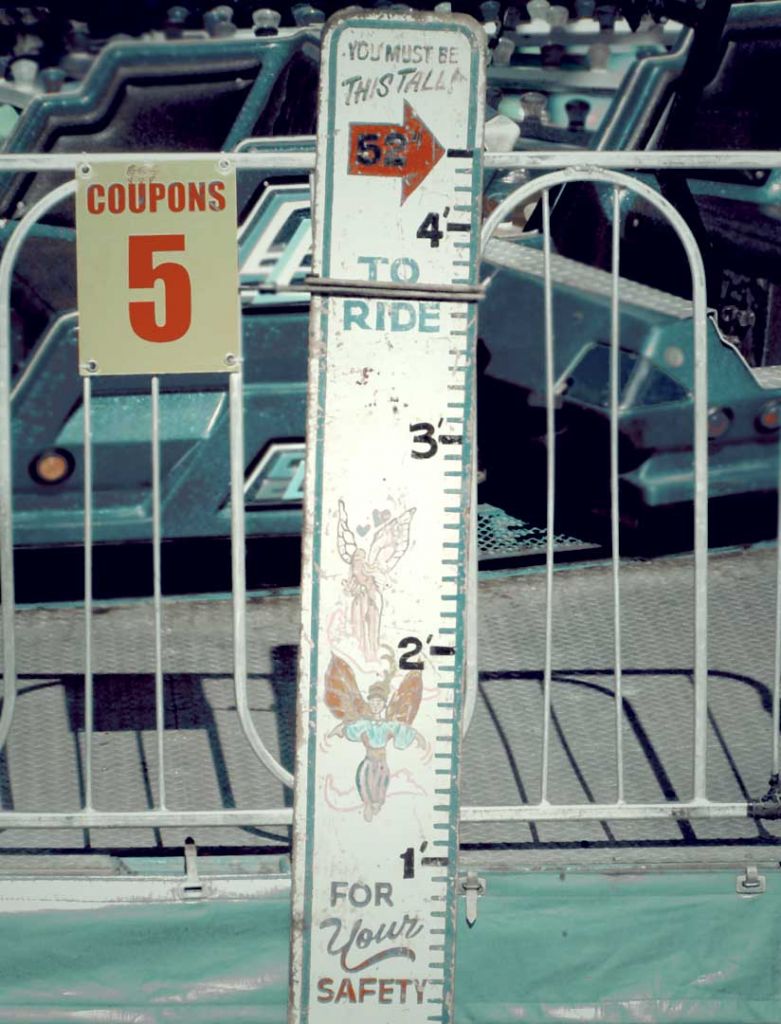Playing Tabletop RPGs with Teenagers
Tips for playing tabletop roleplaying games with teenagers
All of us started young. I was 13 when I played my first tabletop roleplaying game, and I was immediately hooked. Looking back, I now know that as a young RPG-gamer, I had vastly different expectations of a game session than I have today. That’s why roleplaying with minors is not the same as playing with RPG veterans. For example, they need fewer challenges and more encouragement. In light of this, here’s a series of tips and tricks to ensure that playing with teenage gamers turns into a fun experience instead of ending in disaster.
Impact: ★ ★ ☆ ☆
Difficulty: Intermediate
Time to read: 11 min
Is there a minimum age for tabletop roleplaying games?
Yes, absolutely. Roleplaying games are a rather complex hobby. There is no gaming board with meeples on it, so you need a hearty dose of imagination to picture a story that is being narrated to you. Additionally, the wide freedom of action in an RPG session can easily overwhelm younger players. So what’s a good age to start with roleplaying games?
13 years
Thirteen-year-olds already possess enough imagination to understand an abstract story. At this age, they are also able to enjoy group discussions and making their own decisions.
10 can be old enough if…
…the kids bring enough experience from playing games with their family. If their parents regularly play board games or if they read a lot, then they should be sufficiently equipped to enjoy playing a roleplaying game.

The easier the plot, the better
One of the main advantages of tabletop RPGs is the wide range of possible actions the players can take. But this freedom to act often overburdens younger players. I have seen many kids paralyzed at the gaming table just because they didn’t know what their characters were supposed to do next. To fix this, have a simpler plot and avoid needless complexities in your story. I would even recommend railroading younger players to some degree. They don’t want to be bothered with complex decision trees or difficult relationships between the PCs. Instead, give them a clear and easy-to-understand goal.
Plots like “get rid of the troll who is terrorizing merchants near the forest road” will be perfect. As younger players tend to occupy themselves with many small details that are not directly relevant for the story, checking their adventurer’s gear, taking care of pet companions, or simply doing the day-to-day chores in a medieval village are already entertaining enough for them. In this way, they can make a small scene like catching a bandit into an afternoon-filling adventure.

Make them feel like they’re heroes
As a teenager, it feels great to defeat monsters and overcome obstacles with your character in a fantasy world. It feels good to experience a world that needs you. That’s exactly what you should make them feel. Be a fan of their characters and provide scenes in which they can show off their characters’ strengths. Bloodthirsty monsters for the warrior, sneaking past guards for the rogue, and solving arcane mysteries for the mage. Pose mighty challenges to your players to make them work for their successes. That’s the best you can do to deliver a great RPG experience.
This sometimes means you have to be open to their unconventional approaches. Young players don’t have as much experience with in-game problem solving as veteran players do. Their plans might not be fully thought through, and it’s hard for them to determine the consequences of their actions within the story. That’s why you should help them with a forecast of what’s going to happen before they take action.

Today’s teenage RPG players are the next generation for our hobby. If you can get them interested in roleplaying games, you’re doing the community a great service.
Be patient with younger players
When playing tabletop RPGs with teenagers, don’t have excessively high expectations in the dramaturgic quality of the session. Forget about things like dramatic story arcs or emotional conflicts between the player characters. Why? Because the attention span of teenagers is razor thin. It’s hard for them to concentrate on a specific topic for longer than a few minutes. Also, they tend to ignore the plot the GM has so elaborately prepared. Instead, teenagers want to explore the setting. “What happens if I have my horse drink beer? Can I jump from a 30-foot-tall tree? Will someone notice if I set the village farm on fire?” This is what they want to find out. They don’t do that out of malice or to sabotage your plot. It’s just that their juvenile curiosity is stronger than their desire to follow the social norms of the roleplaying society. What if the merchant offers a reward for a quest in advance? Then your teenage players will probably spend more time buying new gear at the market square than going on the heroic quest. And that’s why a GM who is used to playing with experienced gamers will need a lot of patience when playing with teenagers. As younger players might often neglect a lovingly crafted plot, they constantly need a friendly push back to the story arc.
The same is true for staying “in-character” and roleplaying their characters’ personalities. You’ll often see younger players acting out of character because they tend to be so occupied with what’s going in the story. Additionally, it is much easier for them to be immersed in the plot than it would be for older players. That’s usually a good thing for playing tabletop RPGs, but for a highly motivated GM used to playing with veterans, this means lowering your expectations. A solution to this would be having a straightforward plot that leaves room for improvisation. You’ll see that having little expectations in your own story usually also lowers your expectations in your players.

Help them predict the consequences of their actions
Player (at their first RPG session): “And I can really do whatever I want?”
GM: “Sure. You decide what your character is doing.”
Player: “Okay, then I’ll light the granary on fire to distract the guards.”
GM: “Sure. You decide what your character is doing.”
Player: “Okay, then I’ll light the granary on fire to distract the guards.”
A true story from one of my past RPG sessions. As parents can attest to, it is often hard for teenage players to imagine the repercussions of their actions, and in the above example, the players managed to solve the problem, at least from their perspective. They did manage to distract the guards. But they did not think about the further consequences. In this case, their characters caused a local famine and were condemned as criminals. Younger players might even be amused about how their actions unsettled the NPCs and the fictive world around them (as well as the GM). But they do not see that this can potentially ruin the whole story the GM has prepared for them.
A fix for this dilemma is signaling the consequences of their actions in advance, like giving them a sneak-peek into the near future should they choose to go down the dark path. Going back to our example above, when the players are about to light up the granary, the GM can tell them, “Yes, this will distract the guards. But also bear in mind that the villagers will be looking for the arsonist who did this. And you’ll probably ruin the whole village by burning their grain stock.” This will give your players a better foundation to base their decisions. Of course, there are some players who will ignore your well-intended advice. In this case, have the consequences play out as promised. Teenage players usually won’t hold any grudge against you for that. For them, it’s part of a learning process, even if their characters end up in a dank prison cell. And it will be a lesson for them for the next roleplaying session.

Educational impact: Learning during play
For teenagers, roleplaying games are a vast playground to explore their limits. They take experiences they have at the gaming table and use them in real life. How are crimes being punished? What happens when I insult the king? How does my environment respond to my actions? These are some questions young players are dealing with while roleplaying. Of course, having fun comes first. But the GM should ideally be aware of their responsibility to convey some positive values in addition to entertaining them.
The players’ behavior toward authorities is a classic situation for this. If the players conduct themselves poorly toward a duchess or guild lord, then the NPC will likely offer their quest to another group of adventurers. I strongly recommend not letting your teenage players get away with all of their silly actions. You could, for example, end a gaming session an hour too early if they sabotaged the plot just for the sake of it. As mentioned earlier, young players are usually not resentful and will try to make it better next time.
See to the silent ones
I’ve learned that with teenage roleplayers it’s common to have one or two very silent players in the group. Shyness or peer pressure are usually the reasons for this. These silent players will require a bit of extra attention and sensitivity from the GM. It often helps to ask them what their character is doing or thinking to have them come out of their shell. But don’t put too much pressure on them, or they’ll clam up even more. To involve them, you need to be very tolerant and open to their ideas and actions to encourage them to participate more.
Just as there are silent players, there might also be very active and loud players in a group of teenage roleplayers. You should try to slow them down a bit to help the more silent players so that everyone gets their fair share of attention at the table. What works well for me when playing with a teenage group is this: if the louder kids want the group to do something, tell them that they have to convince the more passive players of their ideas first. Do this a few times, and the more active players will then involve the others in the group’s decisions more often.
Another tip: Have a seating order. Have the more silent players sit directly opposite of you. This will automatically give them more of your attention. For more details on seating order, check out this article.
Another tip: Have a seating order. Have the more silent players sit directly opposite of you. This will automatically give them more of your attention. For more details on seating order, check out this article.

Rewards go a long way for young roleplayers
Do you want to educate your teenage players to act in a certain way during your RPG session? Maybe you want them to solve a dispute between two NPCs without using violence. In that case, offer them some rewards. Additional experience points from you or some gold coins from thankful NPCs go a long way with teenage players. Using tokens or poker chips as a visual reward works even better. But always try to ensure a fair and equal distribution among your teenage roleplayers. Having one player get a bit more is okay but no one should be left without extra rewards at the end of the session. This will only build up envy and frustration in the group.
As for me, I like to reward creative ideas toward solving a conflict as well as teamwork. Whatever behavior you want to promote, do it a few times and you can be sure your players will remember this in your next gaming session.
As for me, I like to reward creative ideas toward solving a conflict as well as teamwork. Whatever behavior you want to promote, do it a few times and you can be sure your players will remember this in your next gaming session.
Summary: Playing with teenagers can be a challenge, but it’s very rewarding
Yes, it can be a bit tough playing with an unruly group of teenage savages. Sometimes you’re probably facepalming behind your GM screen. But then again, teenage players bring a lot more enthusiasm to the gaming table than most veteran roleplayers do. It’s easier to thrill them with a good story. So for the effort you put into a session with young players, you get a lot of positive feedback in return. It’s the feeling of providing someone a great gaming experience that makes it worth your while. Additionally, you’re doing a great service for the RPG community. Today’s RPG kids will become the next generation for our hobby.


